What is a resolver?
Resolver is the current domestic professional name, referred to as "rotating change". Because the basic principle of its work is the Transformer, the air gap of the "transformer" on the stator changes periodically during the work process by rotating the rotor, and then forms the function of monitoring the angular displacement (speed and position) of the motor rotor, so its full name is rotating transformer, which can also be translated into Rototary Transformer. However, this name is rarely used in English, and the general English name is Resolver.
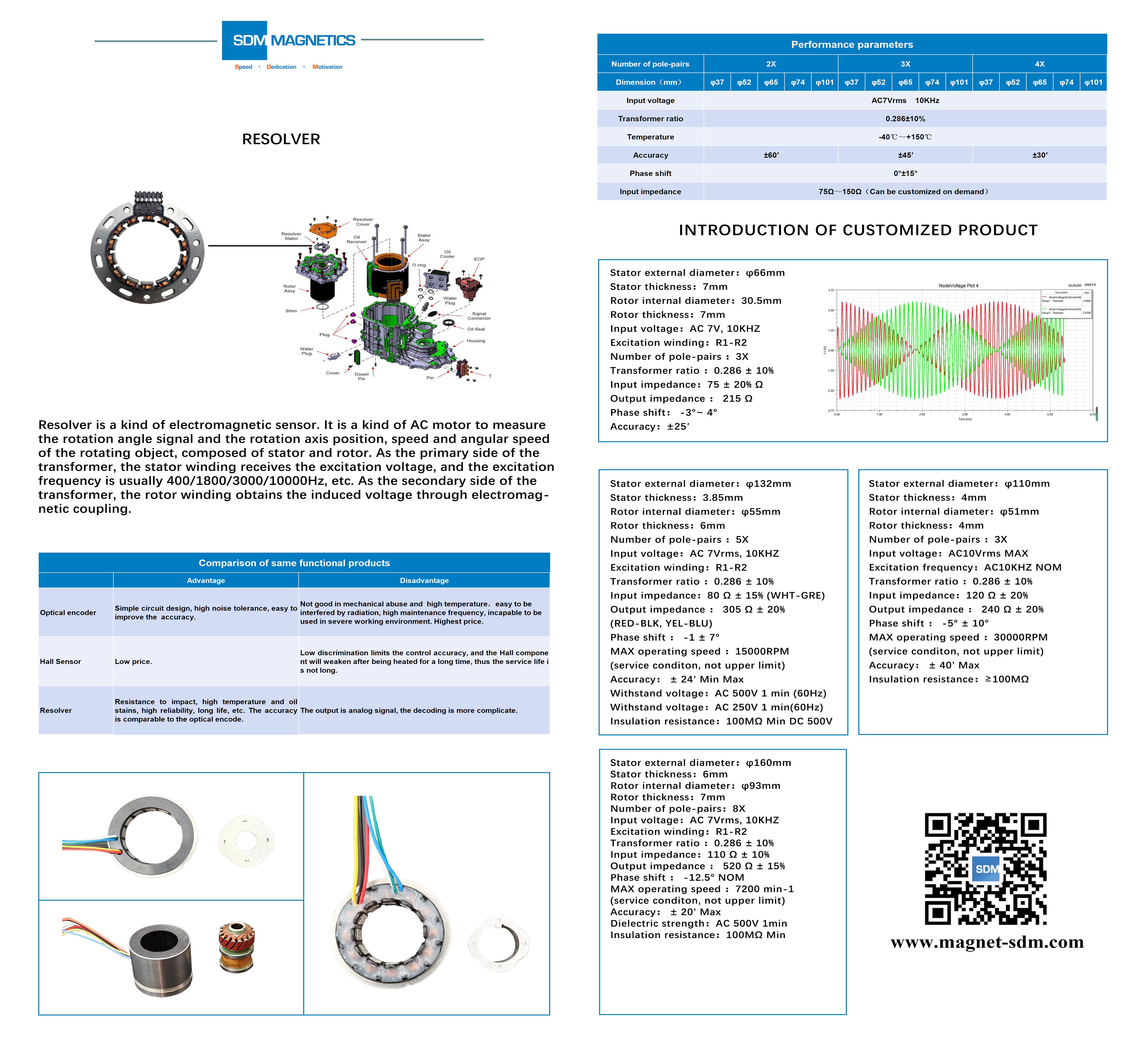
The Applications and Future Trends of Sensor Resolvers
Electric Motors and Servo Systems: Sensor Resolvers are widely employed in electric motors and servo systems to provide accurate feedback on the rotor's angular position. This feedback is essential for closed-loop control systems, enabling precise positioning and velocity control.
Robotics: In robotics, Sensor Resolvers are used to monitor joint angles, ensuring that robots move with high precision and repeatability. They are vital for applications requiring intricate maneuvers, such as assembly lines and surgical robots.
Aerospace and Defense: The aerospace and defense industries rely heavily on Sensor Resolvers for critical systems like flight control actuators, gimbals, and radar antennas. Their high reliability, accuracy, and immunity to EMI make them ideal for these demanding environments.
Industrial Automation: In industrial automation, Sensor Resolvers are used for positioning tasks in machines such as CNC milling machines, laser cutters, and 3D printers. They ensure precise movements and enhance productivity.
Energy and Utilities: In the energy sector, Sensor Resolvers are employed in wind turbines and other rotating machinery to monitor rotor position and speed, optimizing energy output and ensuring safe operation.
Medical Equipment: They also find applications in medical equipment, such as CT scanners and radiation therapy machines, where precise angular positioning is crucial for accurate diagnoses and treatments.
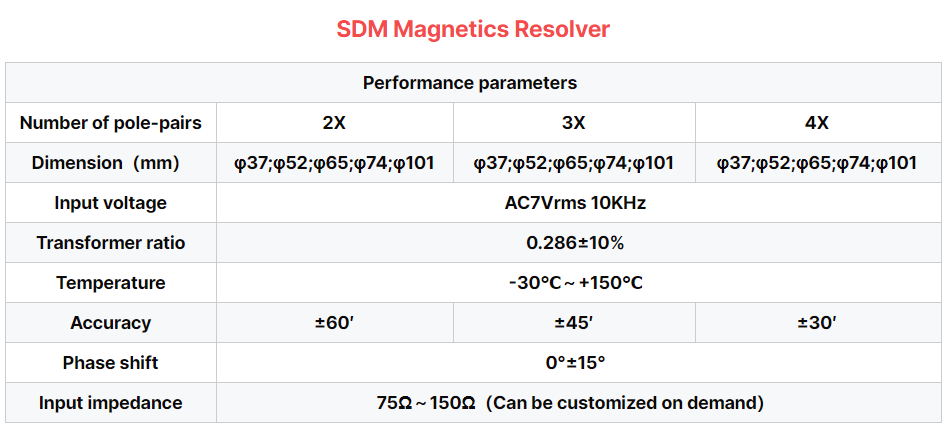
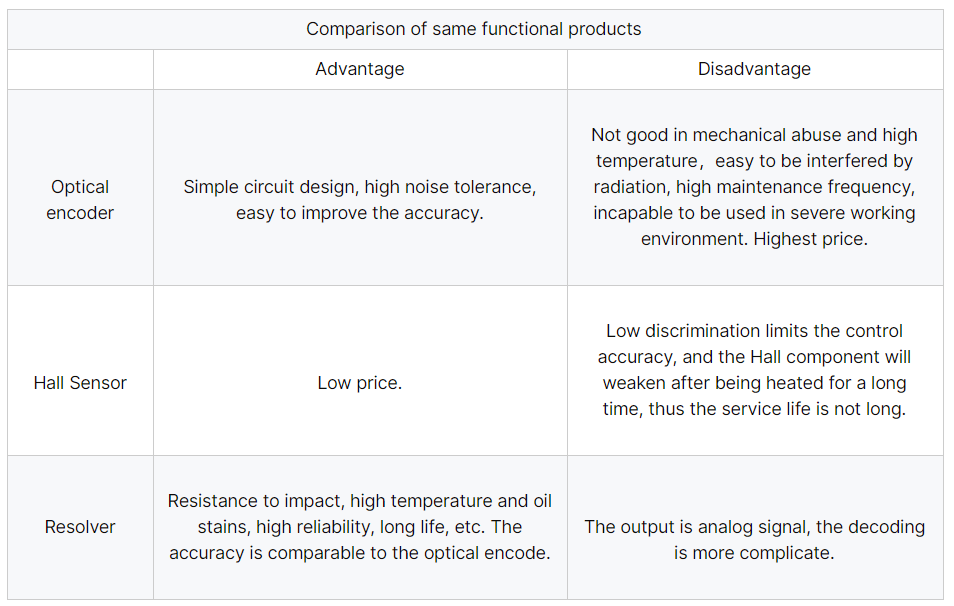
Future Trends
Increased Precision and Resolution: As technology advances, Sensor Resolvers are expected to offer even higher precision and resolution, enabling even more accurate position sensing.
Integration with Advanced Control Systems: The integration of Sensor Resolvers with advanced control systems, such as machine learning and predictive maintenance algorithms, will lead to more efficient and reliable operation of industrial equipment.
Miniaturization and Lightweighting: The trend towards miniaturization and lightweighting in various industries will drive the development of smaller, lighter Sensor Resolvers, enabling their use in more compact and portable devices.
Enhanced Durability and Reliability: Manufacturers will continue to focus on enhancing the durability and reliability of Sensor Resolvers, ensuring they can withstand harsh environments and maintain high performance over extended periods.
Cost-Effective Solutions: With the increasing demand for precise position sensing in various industries, cost-effective Sensor Resolver solutions will become more prevalent, making them accessible to a wider range of applications.
Integration with IoT and Smart Systems: The integration of Sensor Resolvers with Internet of Things (IoT) and smart systems will enable remote monitoring and control, further enhancing operational efficiency and reducing downtime.
In conclusion, Sensor Resolvers are essential components in numerous industries, providing precise angular position sensing for critical applications. Their future trends point towards increased precision, integration with advanced control systems, miniaturization, durability, cost-effectiveness, and integration with IoT and smart systems.
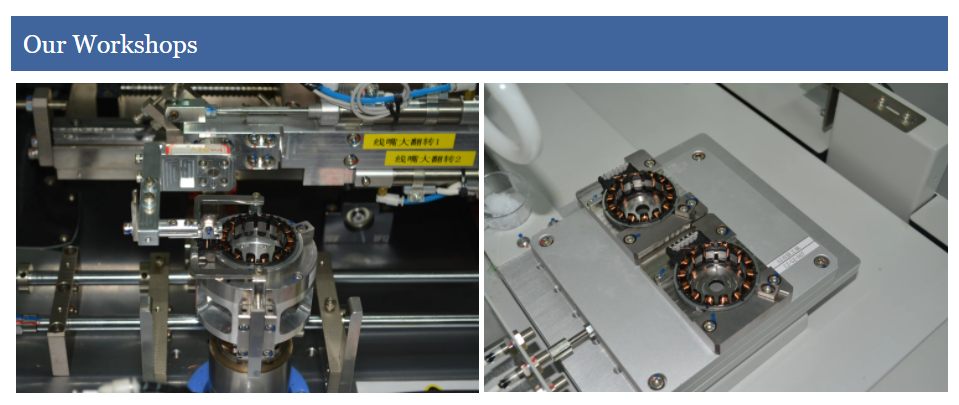
100% full inspection of production line
MES system each product of all raw materials + each process + factory 100% full inspection traceability.Providing high quality products through new technologies. We know that the trust of our customers is the cornerstone of our long-term cooperation.
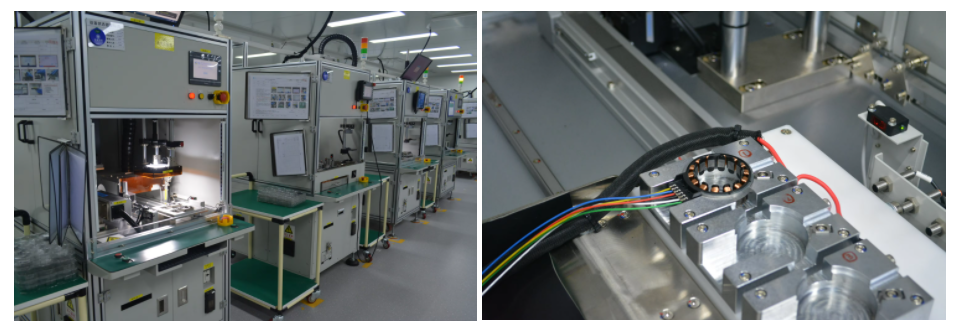
Strong custom development ability
Support customized according to motor design, control and other special needs. Assist the client in the overall design, analysis and optimization of the drive unit and rotation cooperation, and analysis and solution of bench test problems; Rich experience in automotive project development, manufacturing and quality management.



















